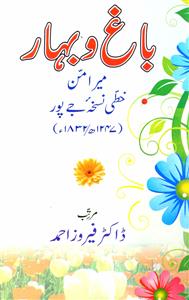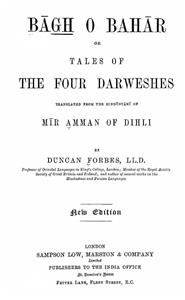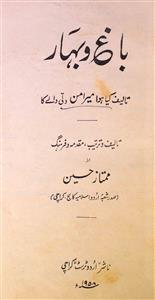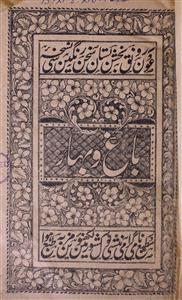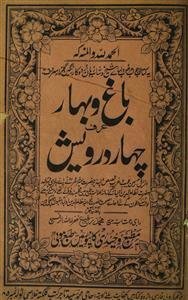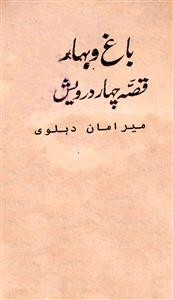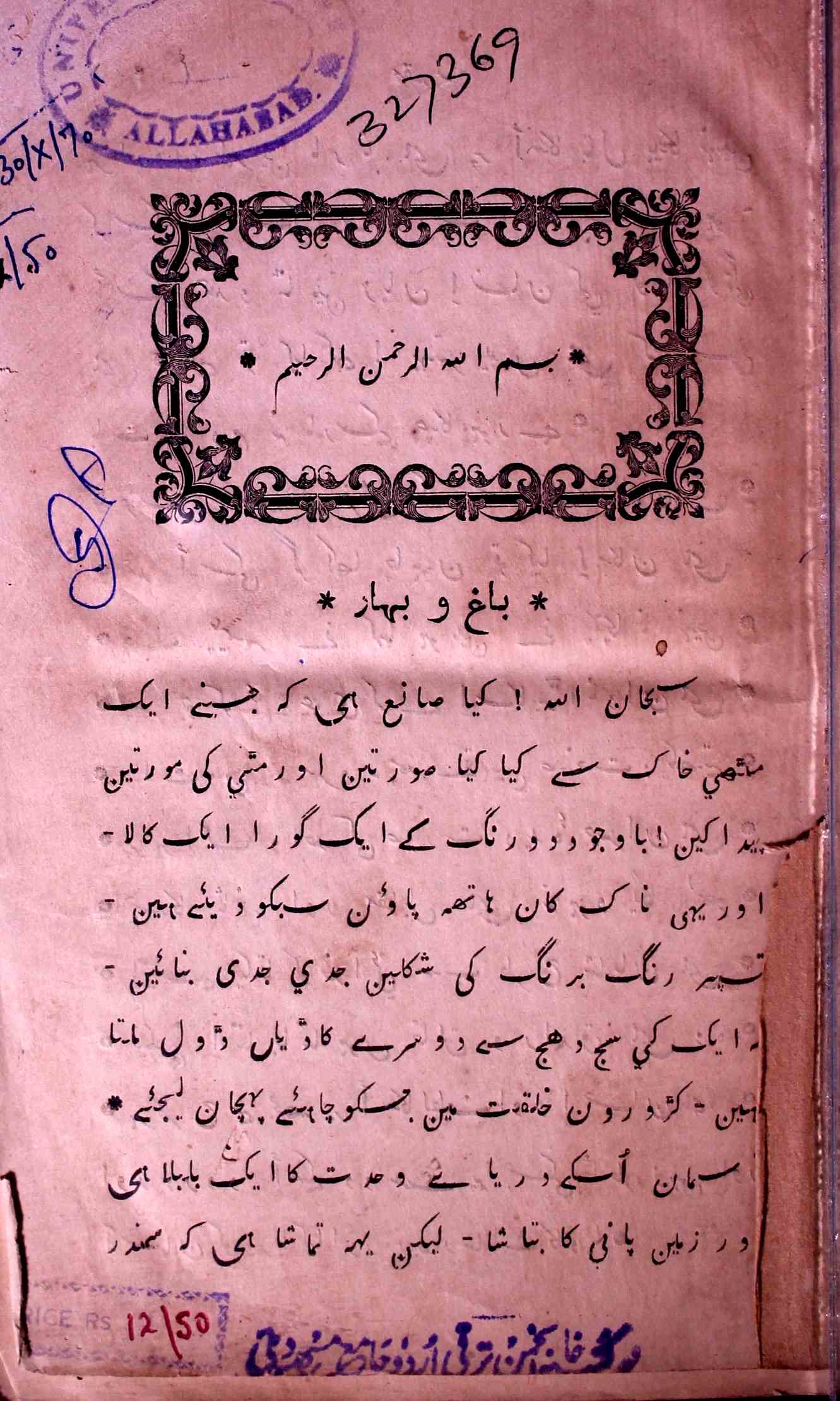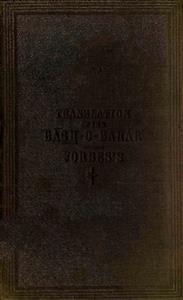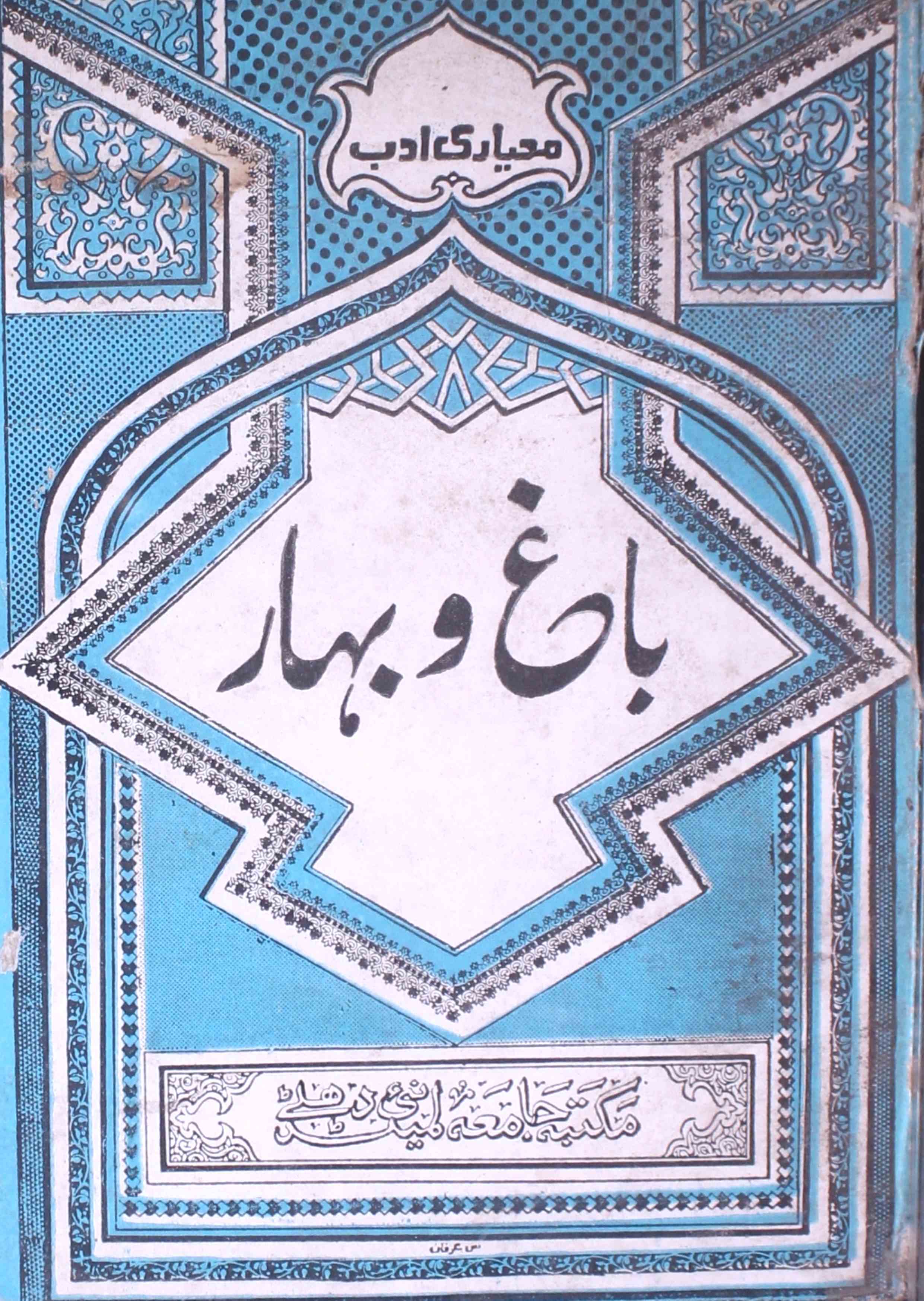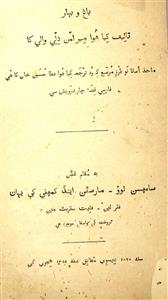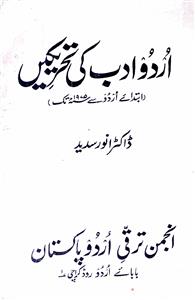 For any query/comment related to this ebook, please contact us at haidar.ali@rekhta.org
For any query/comment related to this ebook, please contact us at haidar.ali@rekhta.org
About The Book
"باغ و بہار" جسے میر امن نے فارسی زبان سے ترجمہ کیا تھا۔ یہ کتاب 1804 میں جان گلکرست کی نگرانی میں چھپ کر منظر عام پر آئی تھی اور اپنی مقبولیت کی بنا پر بہت زیادہ مشہور ہوئی۔مگر جب یہ چھپ کرآئی تو اس میں بہت زیادہ اغلاط تھی جس کی فہرست کو بھی اس کتاب کے آخر میں شایع کیا گیا۔ اس کے بعد رشید حسن خان نے 1992 مین اس کے متن کو ٹصحیح کر کے چھاپا جو بہت ہی زیادہ سراہا گیا اور انہوں نے لندن والے قلمی نسخے کو اہمیت دی مگر 2012 میں ڈاکٹر فیروز احمد کو ایک قلمی نسخہ جے پور میں دستیاب ہوا جو باقی تمام نسخوں میں بہتر اور اغلاظ سے پاک تھا۔اس لئے انہوں نے اس کو دوبارہ شایع کرنے کی سعی بے حد کی ہے۔ جو نسخہ اساسی قرار دیا گیا ہے وہ 10 شوال 1247 ھ مطابق 13 مارچ 1832 ء میں لکھا گیا۔ اور یہ نسخہ اساسی کی حیثیت سے سامنے رکھ کر اس کی اغلاط کو درست کیا گیا اور منشاء مصنف کے مطابق مانا گیا۔ اس لئے ضروری ہے کہ اس متن کا مطالعہ کیا جائے تاکہ دوسرے چھپے ہوئے ایدیشنس سے اس کا تقابل ہو اور یہ جانا جا سکے کہ آخر کون سا ایڈیشن زیادہ صحیح ہے۔
About The Author
There is a living example of a living prose style in Urdu whose infinite appeal has stayed on and on over the last two centuries. In fact, with each passing decade, its popularity has increased and taken more readers into its magical fold. This book is Meer Amman’s Bagh-o-Bahar which, in fact, is a translation of Ata Hussain Tehseen’s Nau Tarz-e-Murassa. It is important to note that even while it is a translation; it reads like a fascinating narrative and stands entirely on its own. Its significance may be appreciated with reference to the fact that it has immensely influenced Urdu writers in the succeeding generations and given a direction to Urdu prose. It is a testimony of its great appeal to common human imagination that from Urdu, Bagh-O-Bahar has gone into French and English translations as well.
Meer Amman was born in Delhi around 1748. His family members had been the official functionaries of the Mughals ever since the days of emperor Humayun. He had inherited considerable property but Suraj Mal Jaat usurped them. Further, Ahmad Shah Durrani created havoc which added further to his misery. Meer Amman suffered badly and had to leave Delhi. He could reach Azeemabad (Patna) with great difficulty where he lived for a few years. As he did not have enough for his sustenance, he left for Calcutta to try his luck but there also he remained jobless for some time. Later, Nawab Dilawar Jung appointed him as a guardian to his younger brother, Mir Kazim Khan. He was not much enamored by this job and got impatient after two years. After this, he came into contact with Mir Bahadur Ali Hussaini who introduced him to John Gilchrist. This introduction to the great grammarian and linguist, John Gilchrist, got him an appointment at Fort William College where he worked as a writer and translator until June 04, 1806.
After joining the College of Fort William, he was first assigned the job of translating Qissa Chahar Darwesh. According to instructions from John Gilchrist, he translated it in pure Hindustani which was so well received that the College awarded him with a prize of rupees five hundred. It is important to note that even while he kept Tehseen’s primary text before him, he made many changes into it and developed his narrative which tells a tale of four derweshes with Azad Bakht as the central figure.
Meer Amman found a way with language beyond Arabic and Persian and developed his interesting tale in Hindavi, which often took leave from the established principles of grammar and came very close to the language spoken in Delhi. Critics have found fault with Amman for compromising with grammar and also disregarding the accepted norms of using singular and plural numbers, as well as masculine and feminine genders. In spite of this, Bagh-o-Bahar was too well received and emulated. Apart from Bagh-o-Bahar, Meer Amman also translated Mulla Hussain Waa’iz Kashifi’s Akhlaq-e-Mohsini as Ganj-e-Khoobi but it did not receive the kind of popularity that Bagh-O-Bahar had received.
The details of Meer Amman’s life are not available in the tazkiras. It is, therefore, difficult to ascertain the date of his birth and death, apart from other particulars. It would be interesting to note that Meer Amman, the formidable author and translator, was paid much less than his British counterparts.
 For any query/comment related to this ebook, please contact us at haidar.ali@rekhta.org
For any query/comment related to this ebook, please contact us at haidar.ali@rekhta.org
